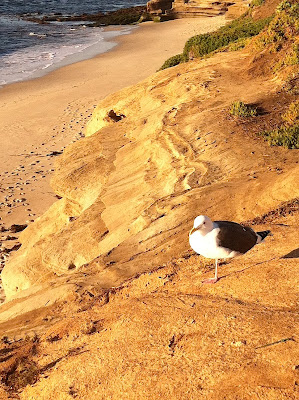On New Year's Eve many sing a Scottish folk song written by Robert Burns, They sing, “we’ll take a cup o’ kindness yet, for auld lang syne" at Hogmanay, the Scottish New Year’s Eve. Hogmanay derives from a French word for a gift given at the New Year.
Just after midnight, someone scrambles into the house of a neighbor or friend with gifts. This is called "first footing" or becoming the first person to bring good fortune for the new year. The first-footer is a tall dark-haired male.
Customs vary by region within Scotland and include, decorated herrings, fireballs, pipe bands, fruit cakes, song and whiskey.
Have a safe New Year's Eve. Get to sleep early, Then you will have a clear head to write your way into the New Year on January 1, 2013.
When you awaken in 2013 give yourself a gift. Stay under the covers a few minutes to think about your writing.
Place a sheet of paper where you'll see it every day. Over the next weeks, make notes of what you expect to play with, discover and accomplish in your 2013 writing. Add wild expectations.
Along the way, add in several daring goals to push yourself beyond limits.
In the last two weeks of January, lock in your goals and determine three actions for each.
l. What you will do (specifically) to accomplish your goals given your current writing climate and resources.
2. Who might be able to help you. Contact that person with specific requests.
3. Write a scene of what to expect when you meet your goal.
Happy Write Year!
Just after midnight, someone scrambles into the house of a neighbor or friend with gifts. This is called "first footing" or becoming the first person to bring good fortune for the new year. The first-footer is a tall dark-haired male.
Customs vary by region within Scotland and include, decorated herrings, fireballs, pipe bands, fruit cakes, song and whiskey.
Have a safe New Year's Eve. Get to sleep early, Then you will have a clear head to write your way into the New Year on January 1, 2013.
When you awaken in 2013 give yourself a gift. Stay under the covers a few minutes to think about your writing.
Place a sheet of paper where you'll see it every day. Over the next weeks, make notes of what you expect to play with, discover and accomplish in your 2013 writing. Add wild expectations.
Along the way, add in several daring goals to push yourself beyond limits.
In the last two weeks of January, lock in your goals and determine three actions for each.
l. What you will do (specifically) to accomplish your goals given your current writing climate and resources.
2. Who might be able to help you. Contact that person with specific requests.
3. Write a scene of what to expect when you meet your goal.
Happy Write Year!

























